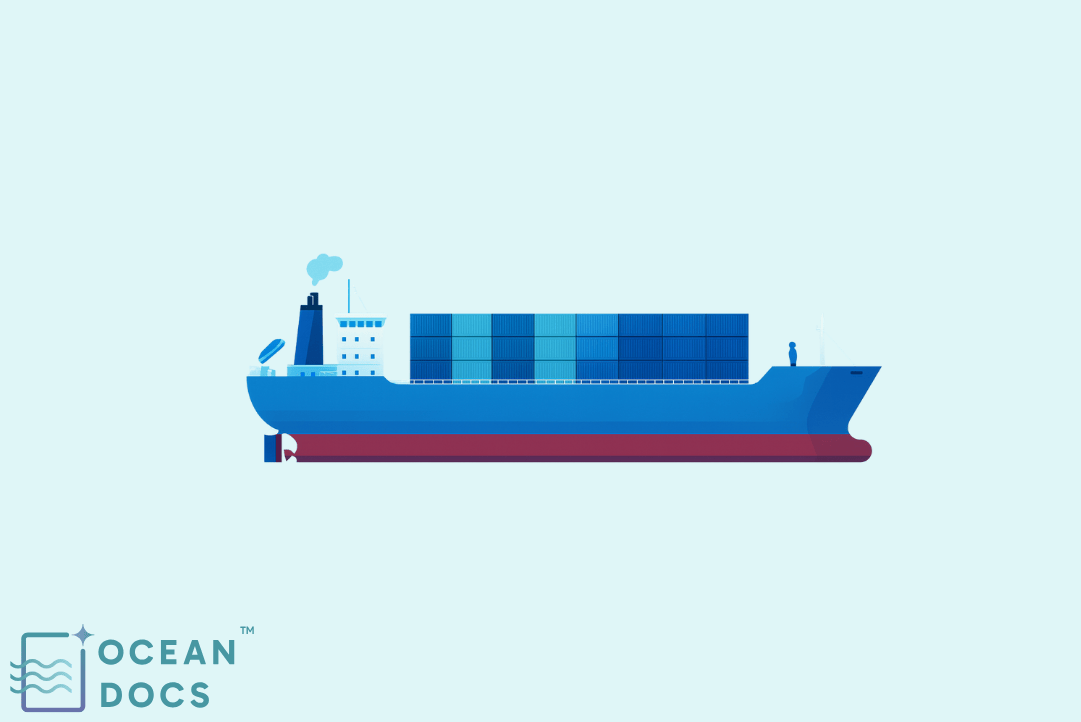
What Is MARPOL and Why It Matters for Ship Operators by OceanDocs AI
September 29, 2025 By OceanDocs AI
MARPOL sets out the main rules that help ships reduce pollution at sea. It covers how vessels manage waste, handle fuel, and prevent oil or chemical spills. These guidelines are designed to protect marine life and coastal environments while keeping global trade running safely.
For ship operators, understanding MARPOL is a practical part of everyday operations. It ensures vessels meet environmental standards, stay compliant during inspections, and contribute to cleaner and more responsible shipping practices.
Understanding MARPOL
MARPOL stands for the International Convention for the Prevention of Pollution from Ships. It was developed by the International Maritime Organization (IMO regulations) and first adopted in 1973, with the current version including later amendments. The convention addresses pollution caused by oil, chemicals, sewage, garbage, and air emissions from ships.
Its main purpose is to set strict rules that reduce the environmental impact of shipping. This applies to all vessels, regardless of size or type, and is enforced by flag states and Port State Control inspections.
Why MARPOL Matters for Ship Operators
For ship operators, MARPOL is more than a set of guidelines. It is a core part of maritime compliance that affects daily operations, crew training, and long-term vessel management.
Key reasons why MARPOL is important:
-
Protecting the Marine Environment
MARPOL limits the discharge of harmful substances into the ocean. This includes oil spill rules, no-discharge zones, and waste management systems. Compliance directly contributes to cleaner seas and healthier marine life. -
Avoiding Penalties and Detentions
Non-compliance can lead to fines, detentions, and legal consequences. Sire Vetting inspections, Port State Control checks, and environmental audits often include MARPOL compliance as a key factor. -
Maintaining Reputation
Clients, partners, and regulators view compliance with MARPOL as a sign of professionalism. A vessel known for strong environmental practices is more likely to secure long-term contracts and maintain industry trust.
Key MARPOL Annexes Ship Operators Should Know
MARPOL is divided into six annexes, each targeting a specific type of pollution:
-
Annex I: Oil pollution prevention
-
Annex II: Control of noxious liquid substances in bulk
-
Annex III: Harmful substances in packaged form
-
Annex IV: Sewage pollution prevention
-
Annex V: Garbage pollution prevention
-
Annex VI: Air pollution from ships
Each annex has clear guidelines on equipment, operational procedures, and shipping documents that must be maintained.
The Link Between MARPOL and Other Maritime Regulations
MARPOL does not exist in isolation. It works alongside other major conventions like SOLAS, the ISM Code, STCW, and the ISPS Code. While SOLAS focuses on vessel safety and crew protection, MARPOL focuses on preventing environmental damage. The COLREGs ensure safe navigation, and ISGOTT provides tanker-specific safety and environmental guidelines.
Together, they create a strong framework for shipping compliance and maritime environmental compliance.
Role of Shipping Documentation in MARPOL Compliance
Compliance with MARPOL is closely tied to having the right documentation. Ship operators must maintain updated records such as:
-
Oil Record Book (Part I and II)
-
Garbage Record Book
-
Sewage management plans
-
Certificates of compliance for air emissions
-
Fire Control Plan and other safety-related documents linked to environmental procedures
These are reviewed during Port State Control inspections and Sire Vetting processes. Missing or outdated documents can lead to detention even if the ship’s equipment meets standards.
Challenges in Staying MARPOL-Compliant
Even experienced operators face hurdles:
-
Incomplete documentation: Missing or outdated logs and certificates
-
Crew knowledge gaps: Lack of training in MARPOL procedures
-
Operational lapses: Discharges outside allowed zones or improper equipment use
-
Changing regulations: MARPOL is updated regularly, requiring ongoing adaptation
How OceanDocs AI Helps with MARPOL Compliance
Modern fleets are turning to OceanDocs AI to simplify compliance. By digitizing shipping documents and making them searchable, OceanDocs AI reduces preparation time for audits and inspections.
Ship operators can:
-
Store and organize compliance documents digitally
-
Retrieve records instantly during inspections
-
Improve crew readiness with smarter access to critical files
With OceanDocs AI, compliance becomes less about paperwork and more about operational efficiency.
Best Practices for Ship Operators
-
Train the Crew Regularly: Ensure everyone understands MARPOL requirements.
-
Keep Documents Updated: Maintain accurate and accessible records.
-
Integrate MARPOL into Safety Management: Link environmental procedures to ISM Code and safety plans.
-
Conduct Internal Audits: Identify gaps before official inspections.
-
Use Digital Solutions: Leverage OceanDocs AI for instant access and compliance readiness.
Final Thoughts
For ship operators, MARPOL is both a legal obligation and a commitment to responsible shipping. It works alongside SOLAS, the ISM Code, STCW, and the ISPS Code to ensure safety and sustainability at sea.
By combining crew training, updated documentation, and smart solutions like OceanDocs AI, operators can stay compliant, avoid penalties, and protect the oceans for future generations.